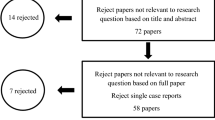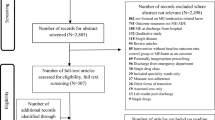Abstract
Background Difficulties swallowing oral medications can affect patient compliance and consequently can compromise patient health. Objective To investigate the prevalence of difficulties in swallowing oral medications among a sample of the Jordanian population and the techniques used to overcome such difficulties. Setting The study was carried out in outpatient pharmacies in the north of Jordan. Method Adult patients who were taking at least one solid oral dosage form for at least 1 month were interviewed using a questionnaire. The questionnaire included demographic details, current medication use, questions about swallowing difficulties, and patient strategies to overcome such difficulties. Main outcome measure The study measured the number of patients reporting difficulties in swallowing oral medications and the techniques used to overcome swallowing difficulties. Results In this study 1250 patients were interviewed and 130 patients reported that they experienced or were currently experiencing difficulties in swallowing oral medications (10.4%). In order to overcome swallowing difficulties, 112 patients (86.2%) stated that they drink more water while 22 patients (16.9%) stated that they cut or crush their solid dosage forms, and 13 patients stated that they open their capsules. Forty-five patients (34.6%) stated that they sometimes skip their doses due to swallowing difficulties. The majority of participants with swallowing difficulties did not discuss their difficulties with their physicians or pharmacists (85.4%). Conclusion Difficulties in swallowing oral medications is a problem that is encountered in Jordan. Techniques used to overcome swallowing difficulties such as crushing or opening capsules can compromise medication efficacy and negatively impact patient health outcomes. Non-compliance due to swallowing difficulties raises a major concern.
Similar content being viewed by others
References
Aulton ME. Pharmaceutics: the science of dosage form design. 1st ed. Edinburgh: Churchill Livingstone; 1988.
Lau ETL, Steadman KJ, Mak M, Cichero JAY, Nissen LM. Prevalence of swallowing difficulties and medication modification in customers of community pharmacists. J Pharm Pract Res. 2015;45:18–23.
Ludman H. ABC of ENT: difficulty in swallowing. Br Med J (Clin Res Ed). 1981;282(6266):799–801.
Stegemann S, Gosch M, Breitkreutz J. Swallowing dysfunction and dysphagia is unrecognized challenge for oral therapy. Int J Pharm. 2012;430:197–206.
Wright D. Swallowing difficulties protocol: medication administration. Nurs Stand. 2002;17(14–15):43–5.
Pharmaceutical issues when crushing, opening or splitting oral dosage forms. https://www.rpharms.com/support-pdfs/pharmaceuticalissuesdosageformsjune-2011.pdf. Accessed 9 July (2015).
Marquis J, Schneider MP, Payot V, Cordonier AC, Bugnon O, Hersberger KE, et al. Swallowing difficulties with oral drugs among polypharmacy patients attending community pharmacies. Int J Clin Pharm. 2013;35(6):1130–6.
Schiele JT, Quinzler R, Klimm H, Pruszydlo MG, Haefeli WE. Difficulties swallowing solid oral dosage forms in a general practice population: prevalence, causes, and relationship to dosage forms. Eur J Clin Pharmacol. 2013;69:937–48.
Wild D, Grove A, Martin M, Eremenco S, McElroy S, Verjee-Lorenz A, et al. Principles of good practice for the translation and cultural adaptation process for patient-reported outcomes (PRO) measures: report of the ISPOR task force for translation and cultural adaptation. Value Health. 2005;8(2):94–104.
Kertscher B, Speyer R, Fong E, Georgiou AM, Smith M. Prevalence of oropharyngeal dysphagia in the Netherlands: a telephone survey. Dysphagia. 2015;30:114–20.
McKinstry A, Tranter M, Sweeney J. Outcomes of dysphagia intervention in pulmonary rehabilitation program. Dysphagia. 2010;25:104–11.
Alenezi N, Wazaify M, Albsoul-Younes A. Evaluation of outpatient–pharmacists’ counseling behavior and content in a teaching hospital in jordan—an observational study. Jordan J Pharm Sci. 2014;7(1):77–87.
Acknowledgements
The authors would like to acknowledge Dr. Isabelle Arnet and Dr. Markus Messerli for their assistance and help.
Funding
This study was supported by a Grant from the Deanship of Scientific Research, Jordan University of Science and Technology, Irbid, Jordan.
Conflicts of interest
The authors declare that they have no conflicts of interest.
Author information
Authors and Affiliations
Corresponding author
Rights and permissions
About this article
Cite this article
Tahaineh, L., Wazaify, M. Difficulties in swallowing oral medications in Jordan. Int J Clin Pharm 39, 373–379 (2017). https://doi.org/10.1007/s11096-017-0449-z
Received:
Accepted:
Published:
Issue Date:
DOI: https://doi.org/10.1007/s11096-017-0449-z




